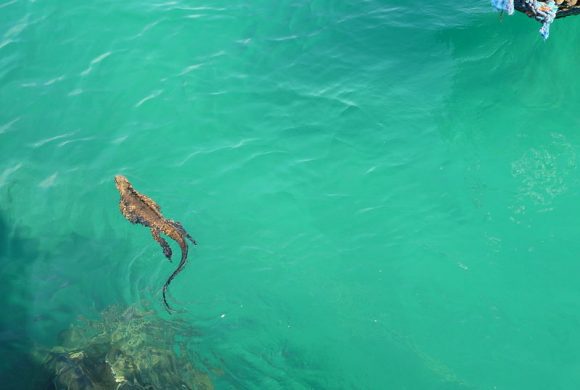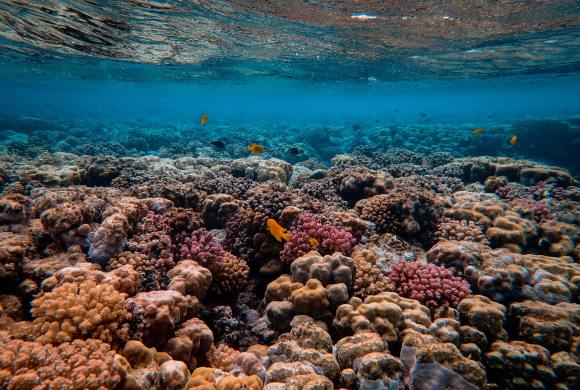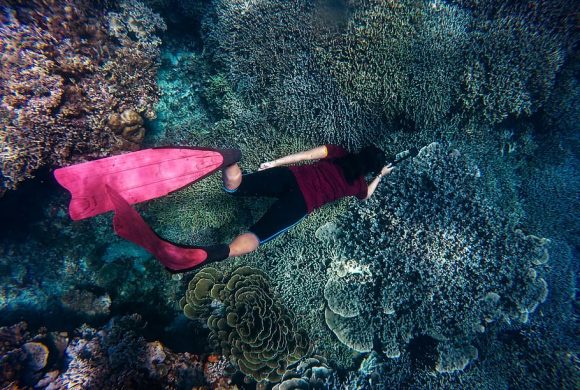Have you heard about marine reserve? If you have not, you might want to follow this article through because it is something interesting, yet not everyone hears of. Spoilers alert, we are going to talk about an effort to save our marine ecosystem from ourselves.
To begin with, let us ask you a question: Do you know that not every ‘corner’ of our ocean is free or wild? Yes, you don’t read it wrong. Huge part of our planet’s ocean is ‘owned’ or ‘used’ by us human, and most of the time human activity will eventually cause disruption to the habitat.
Interesting, isn’t it? If you think this topic is important to be understood, or you just want to learn more about this topic, please follow through without hesitation.
Let’s Talk About Marine Reserve, and Why It Is a Gem
A marine reserve is an exclusive area in the ocean dedicated to conservation. Its purpose is to protect marine life from human activities that harm them. By setting restrictions on fishing, mining, and drilling, marine reserves help maintain the delicate balance of marine ecosystems and preserve their biodiversity.
Marine reserves aim to restore and sustain healthy marine habitats. They establish no-take zones where fishing and extraction are forbidden, allowing fish populations to recover and reproduce undisturbed. This promotes robust populations, genetic diversity, and overall ecosystem resilience.
Moreover, marine reserves provide a safe haven for endangered species and sensitive habitats. Many marine creatures depend on specific areas for food, breeding, and shelter, which are vulnerable to human disturbance. By designating marine reserves, these crucial habitats can be protected, ensuring the survival and recovery of threatened species.
Marine reserves also serve as valuable research sites. Scientists can study marine ecosystems in their natural state, free from human influence. They gather data on species abundance, habitat health, and ecosystem dynamics, gaining insights into marine systems and informing future conservation strategies.
From what is explained above, we should understand that establishing marine reserves is crucial for marine conservation. They effectively protect and restore ocean health by preserving biodiversity, maintaining fish populations, and safeguarding sensitive habitats. Marine reserves contribute to the sustainability of our marine resources, ensuring a thriving ocean environment for future generations.
Effectiveness

The protected areas in the ocean, have varying levels of effectiveness in achieving conservation goals. Well-managed marine reserves positively impact fish populations by establishing no-take zones, leading to increased fish biomass and species diversity.
Its size and design significantly influence their success. Reserves that encompass diverse habitats and species are better equipped to deliver positive outcomes. Ensuring connectivity between reserves and surrounding areas is crucial for species movement and ecological balance.
Continuous research, monitoring, and adaptive management are key to enhancing the effectiveness of marine reserves. Regular evaluation and improvement of reserve design and implementation can address challenges. Incorporating scientific knowledge, local expertise, and community engagement maximizes the contribution of marine reserves to biodiversity conservation and sustainable resource management.
Not Everyone Agrees to Protect Marine Reserve?

Indeed, it showed bright promise in conservation efforts, but their effectiveness depends on multiple factors. Proper management, enforcement, and collaboration are essential for success. By implementing appropriate measures, marine reserves can play a significant role in safeguarding marine ecosystems and ensuring their long-term health and sustainability.
However, challenges like limited enforcement, inadequate resources, and conflicts with local communities can hinder their success. Unfortunately, one of the biggest challenges is limited enforcement.
Without proper monitoring and enforcement, illegal activities can still occur within marine reserves, undermining their effectiveness in protecting marine life. This issue is compounded by inadequate resources, which can limit the capacity to patrol and monitor marine reserves effectively.
Another obstacle faced by marine reserves is conflicts with local communities. Local communities may rely on fishing as their primary source of livelihood, and restrictions on fishing activities can lead to economic hardship. To address this issue, it’s essential to collaborate with and gain the support of local communities.
And as mentioned before, despite these challenges, well-managed marine reserves have shown to have positive impacts on fish populations. By engaging and educating them on the importance of marine reserves, local communities can become advocates for marine conservation, leading to more sustainable fishing practices.
Establishing no-take zones within these reserves, fish populations have the opportunity to recover and reproduce without interference. This leads to increased fish biomass and species diversity, promoting the overall health of marine ecosystems.
Not the Only Solution

Although marine reserves play a crucial role in conservation, they have limitations in addressing the complex challenges faced by marine ecosystems. This is where things get unique. One limitation is the degradation of habitat.
Marine reserves do not fully address habitat degradation. Pollution, coastal development, and climate change impact marine ecosystems beyond the reserve boundaries. Protecting specific areas within reserves may not be sufficient if the overall habitat health continues to decline.
Connectivity and migration of marine species are vital for their survival, but marine reserves may not adequately address them. Some species require movement between habitats for breeding, feeding, and migration, extending beyond the protected areas.
In addition to that, marine reserves alone cannot effectively mitigate global threats like climate change and ocean acidification. These challenges require comprehensive global efforts to reduce greenhouse gas emissions and limit ocean acidification.
To overcome these limitations, a holistic approach is needed. Conservation strategies should include sustainable fisheries management, pollution reduction, habitat restoration, and climate change mitigation. By adopting this comprehensive approach, we can better protect and sustain the health of our oceans and marine biodiversity.
Making Sure the Marine Reserve Effective

Creating numerous reserves alone cannot fully safeguard sea life. A more holistic approach that addresses displacement of fishing activities, habitat degradation, connectivity, and global threats is necessary for effective marine conservation.
A study conducted by Graham Edgar of the University of Tasmania, Hobart specifically studied the matter and discovered that “global conservation targets based on area alone will not optimize protection of marine biodiversity. More emphasis is needed on better MPA design, durable management and compliance to ensure that MPAs achieve their desired conservation value.”
And you know that factors are highly important in creating the desired value? Apparently, it is species diversity in the marine reserve, yet isolation from similar habitat so that every little changes would not happen unnoticed and problems unsolved.
Fisheries biologist of the University of Washington, Seattle, Trevor Branch called the study as a “really good synthesis”. He said that even though the topic is not something new, but this more comprehensive approach apparently gave better answer to questions about marine reserves.
Sources:



Leave a Reply